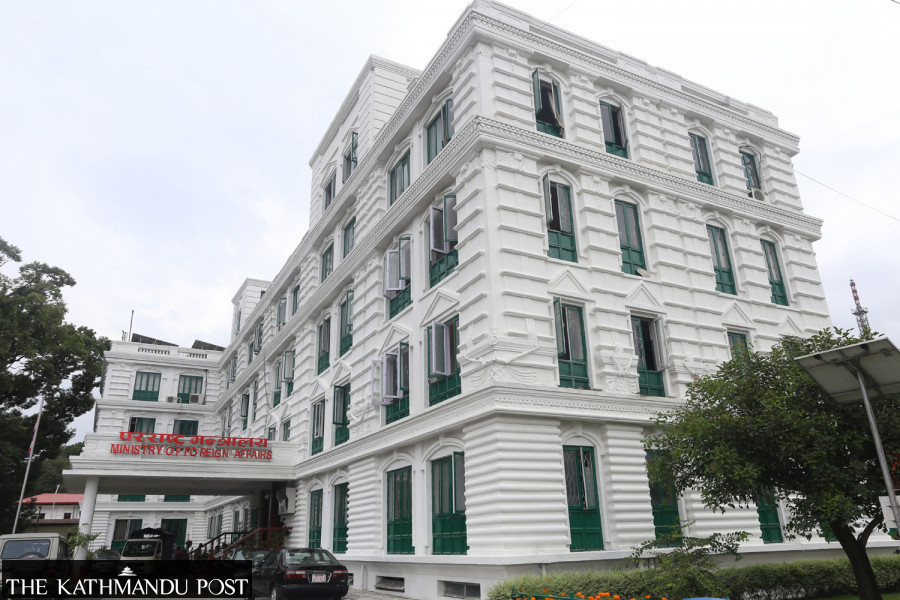National
Foreign ministry and stakeholders discuss visit visa problems, foreign employment issues
Representatives of nine Nepali diplomatic missions also joined the meeting, some virtually and some in person.
Post Report
In the wake of reports that some labour destinations including the UAE and others have tightened visit visas for Nepali citizens, the Ministry of Foreign Affairs discussed the matter with stakeholders on Wednesday.
After the Gen Z protests and in the context of thousands of convicts and inmates fleeing prisons, various countries have reportedly tightened visit visas for Nepali nationals.
During the interaction, officials and stakeholders discussed the current status of Nepalis going abroad on visit visas and engaging in foreign employment, the latest trends on jobs abroad, associated challenges and risks, and the strategies to be adopted in the future for immigration regulation, said the ministry in a statement.
Representatives of nine Nepali diplomatic missions also joined the meeting, some virtually and some in person.
During the interaction, the importance of effective coordination between the foreign, home, labour ministries, and Nepali missions was emphasised in order to address issues related to labour migration, and to make foreign employment safer, more organised, and dignified, said the ministry.
Although no country has officially communicated to the government of Nepal regarding new visa restrictions, representatives of foreign employment agencies have lately been complaining about the difficulties faced by Nepali passport holders.
Officials also discussed the need for simplifying visa rules, especially in the aftermath of the Gen Z movement, stating that the majority of Nepalis going for foreign employment are youths aged between 18 and 40, the foreign ministry statement said.
They also discussed the need for integrated information systems, data exchange, inter-ministerial coordination, the establishment of a rapid response team, the creation of an emergency rescue fund, and possibilities of insurance for visit visa holders, among other things.
Likewise, they also discussed problems related to the Kafala system in certain countries. The Kafala system involves binding migrant workers to a specific employer throughout the period of employment. Also, reports that around 200 Rohingya refugees from Myanmar who had illegally obtained Nepali handwritten passports and gone to Saudi Arabia for work figured during the interaction. Nepal stopped issuing handwritten passports in 2010. The Rohingyas reportedly reached Saudi Arabia via Nepal before 2014.




 11.12°C Kathmandu
11.12°C Kathmandu














